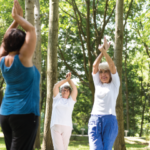Fatigue can significantly affect the quality of life of patients with rheumatoid arthritis (RA), and effective treatments are limited. Research has identified physical inactivity as a primary independent predictor of fatigue. Despite the demonstrated safety of exercise and published guidelines recommending physical activity for RA patients, many people living with RA are physically inactive. The use of pedometers may provide a simple, effective way to increase physical activity and decrease fatigue levels in RA patients.
To test this hypothesis, Patricia Katz, PhD, and colleagues from the University of California San Francisco, Arthritis Research Group, conducted a 21-week, randomized, controlled trial to determine the effect of increasing physical activity on fatigue among individuals with RA. Their results were published in the January 2018 issue of Arthritis Care & Research. The study included a control group, which received only education, and two intervention groups, both of which received pedometers and daily step-monitoring diaries, but with different levels of step guidance. One of the intervention groups received individualized daily step targets that were increased by 10% every two weeks, depending on individual patient progress. Step count data from both intervention groups were collected every two weeks. Additionally, at Week 10, questionnaires were administered by phone to all participants.
Overall, 96 individuals participated in the trial. Fatigue was measured with the PROMIS Fatigue Short Form 7a questionnaire. Researchers also collected data on disease activity, physical function, depression and pain as secondary outcomes.
The Results
“Our results provide evidence that pedometers are effective at increasing physical activity among people with RA and provide support for the hypothesis that increasing physical activity by walking has important effects on fatigue and other RA symptoms,” write the authors in their discussion.
At baseline, the mean daily steps during the first week of monitoring were 4,891, and 56% of participants could be classified as sedentary. Overall, participants in both intervention groups increased their number of steps. Meanwhile, participants in the control group decreased their number of steps, with a mean change of -747. At Week 21, 70% of the control group were classified as sedentary compared with 43% of the pedometer-only group and 36% of the pedometer-plus-step-guidance group.
The authors note that although the differences between the interventions groups were not statistically significant, the changes in activity level were meaningful, with a greater than 30% decrease in the proportion of people classified as sedentary and the number of individuals who met the criterion for a healthy level of activity (≥8,000 steps/day) doubled.



